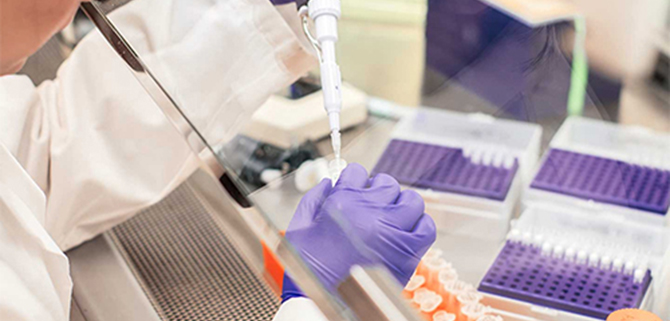
Precision Oncology- The next frontier

Mrs Vijaya* is a 50 year old lady, who notices that her appetite has gone down over the last few months. She has noticed a significant weight loss and has developed a persistent cough, which does not resolve with oral over-the-counter cough remedies. She is concerned about her symptoms and visits her general physician who recommends a CT scan of the chest and abdomen. The CT scan reveals a mass in her lung and enlarged nodes in her chest, with masses in the liver and adrenal glands. She is immediately referred to an oncologist, who orders a biopsy from the lung mass. She is diagnosed with stage IV adenocarcinoma of the lung.
This scenario is becoming increasingly common in today’s times. In India, lung cancer is on the rising trend and is expected to rise seven-fold by 2025 as per an ICMR report. To make matters worse, more than 75% lung cancers are diagnosed in advanced stages (stage III/IV). The reasons cited for this rise include rising levels of air pollution, both indoors and outdoors. Non-smokers are typically diagnosed with the adenocarcinoma subtype, which is now more common in India than the other two subtypes seen predominantly in current/ex-smokers,that is, squamous/small cell carcinomas.
A revolution has taken place in the last decade in oncology. Next-generation sequencing (NGS) is a powerful tool that enables us to read the sequence of the cancer DNA very quickly, and with great accuracy. Lung adenocarcinomas, which were previously treated alike, are now known to have several non-overlapping cancer-causing driver mutations, which can vary from person to person. A new field of precision oncology has emerged, as several drugs have been developed to target these driver mutations which are now widely available in the clinic. EGFR, ALK, ROS, MET are some of the most common mutations which are now routinely tested in all patients who are diagnosed with lung adenocarcinoma. In fact, EGFR mutations are more prevalent in India (up to 30-40% of all patients), than in the west (10-15% patients).
Mrs Vijaya* and her family is extremely worried about her cancer diagnosis. Her oncologist reassures her that she has a high likelihood of testing positive for a driver mutation. As expected, her NGS report is positive for EGFR Exon 19 deletion. To the family’s surprise, their oncologist informs them that she does not need chemotherapy, even though she has stage IV disease. She is advised to start treatment with an oral medication called Tagrisso (Osimertinib), which is a 3rd generation EGFR inhibitor. She feels a renewed sense of hope and optimism, as her oncologist reassures her with this medication, her lifespan will be measured in years, not months.The side effects with the treatment are also minimal and easily manageable at home. She starts the treatment and even a year later, stays in remission. The future looks bright.